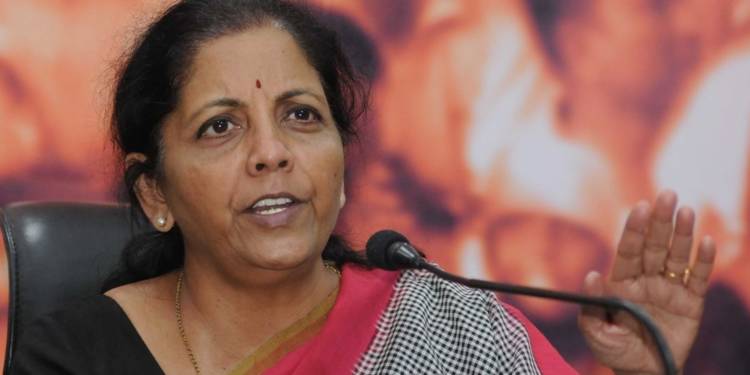The move by the Finance minister, N Sitharaman to regulate the entry of journalists in the Finance Ministry premises a few months back had met with a huge uproar from the left-liberal journalist community. According to the new guidelines the journalists will be needed to have prior appointments with the officials in the ministry to gain access to the premises which earlier was working on a ‘free for all’ model for Journalists where no appointment was needed to enter the Ministry, basically empowering anyone to enter the critical areas with or without any reasonable cause (barring few months before the budget).
This move by the Finance ministry surely didn’t go down well with the journalists who have been used to the earlier model, where they could enter the Finance ministry at their will without any prior appointments planned not only creating administrative hassles but also creating a security risk due to the critical nature of the Finance Ministry. Editors Guild of India even went to the lengths of declaring this move as equivalent to “gag on media freedom”
“This order is a gag on media freedoms and can even result in a further fall in India’s global press freedom rankings, especially as the contagion can easily spread to other ministries as well,” the Editors Guild had said. This was picked up by international media including Reuters to paint India’s press freedom in a poor light.
Also coming out against Finance ministry’s new guidelines were other international media organisations, who like in most of the cases decided to toe the line of Indian Left-Liberal establishment without pondering over the technicalities and changing administrative dynamics.
However, in this case too their hypocrisy was evident as the move by the Finance minister was certainly in line with the rules and guidelines followed by other international organisations. While crying hoarse over Finance minister’s move to improve the administration of Finance ministry, these organisations eat the frog when they are asked to follow similar guidelines elsewhere.
A twitter user had tweeted about a similar guideline which is followed by the IMF and aimed at these journalists who not only outrage selectively but also try to mislead concerning these developments.
“Received this pic from someone outside International Monetary Fund (IMF)’s headquarters building. As one can see in these notices, prior authorisation of journalist’s entry is rather an international SoP followed across all international offices…. It was therefore really hypocritical of media, especially international media, to criticise FM @nsitharaman for making official authorisation necessary for reporting inside the Ministry of Finance. When they gladly follow these rules abroad, why cry hoarse over the same in India?”
It was therefore really hypocritical of media, especially international media, to criticise FM @nsitharaman for making official authorisation necessary for reporting inside the Ministry of Finance. When they gladly follow these rules abroad, why cry hoarse over the same in India? pic.twitter.com/uSPTNrkfVP
— विनय द्विवेदी (@ivinaydwivedi) October 19, 2019
While the International media and several Indian Journalists are happy to oblige rules of these international organisation which mandate prior authorisation of Journalists before entering, their meek attempts to churn a controversy over similar guidelines in India surely raises sharp question on their journalistic ethics.
Traditional media in India has historically been dominated by a group of select elites, result of a perpetual quid pro quo within the industry and the Indian government, which prevented people with unbiased and independent view to contribute to major part of the news. This bias coupled with stronghold over the medium for long has created a situation where selective information is pushed to further political agendas while facts and objectivity takes the back seat. This bias now coupled by pure hypocrisy has surely further degraded whatever credibility was left of these left-liberal journalists.




























